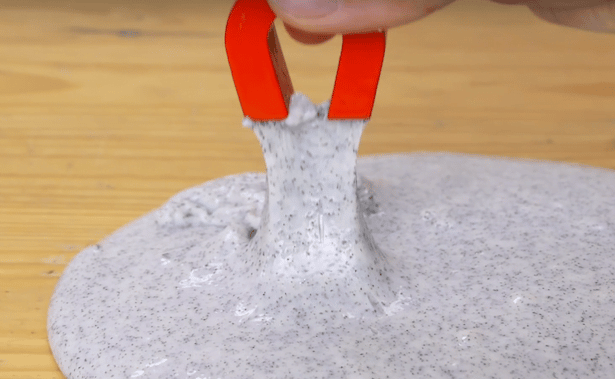A team at the University of Sussex has developed a special industrial adhesive that can dissolve when placed in a magnetic field. This allows objects otherwise destined for landfill to be easily disassembled and recycled at the end of their life.
Currently, objects such as cell phones, microwave ovens and car dashboards are assembled using an industrial adhesive that is practically inseparable except with the use of toxic and highly caustic products.
It is a fast and relatively cheap way of making products, but it creates problems when dismantling and recycling the different parts that compose them. The result is that most of the components of these products can only end up in landfill, increasing the volume of non-recyclable waste.
Chemist Barnaby Greenland teamed up with Stanelco RF Technologies Ltd and Professor Wayne Hayes at the University of Reading to find a solution.
In a new research paper published by the European Polymer Journal, Dr. Greenland and his team describe a new type of industrial adhesive that contains tiny metal particles. When placed in an alternating magnetic field, the adhesive melts and the product splits into its parts.
The adhesive bonds plastic, wood, glass and metal together: in terms of strength it is comparable to the best industrial adhesives.
Dr. Greenland says: “In less than 30 seconds we can split all the products using a relatively weak magnetic field. An energy source tied to an inductor creates the electromagnetic field that separates the parts of an object."
Quick and safe
Using a weak alternating magnetic field is incredibly safe and non-toxic. The energy simply heats the metal particles that make up the glue, but it is such a mild energy that you can put your hands inside the field and not feel any heat.
Practical applications
The recycling of these objects can take place with an embarrassing ease: they will position themselves on a roller, pass through a magnetized cylinder and come out in separate pieces.
A simple solution ed ecologica such a big problem.
The complete study: Sara Salimi et al. Composite polyurethane adhesives that debond-on-demand by hysteresis heating in an oscillating magnetic field, European Polymer Journal (2019). DOI: 10.1016 / j.eurpolymj.2019.109264


